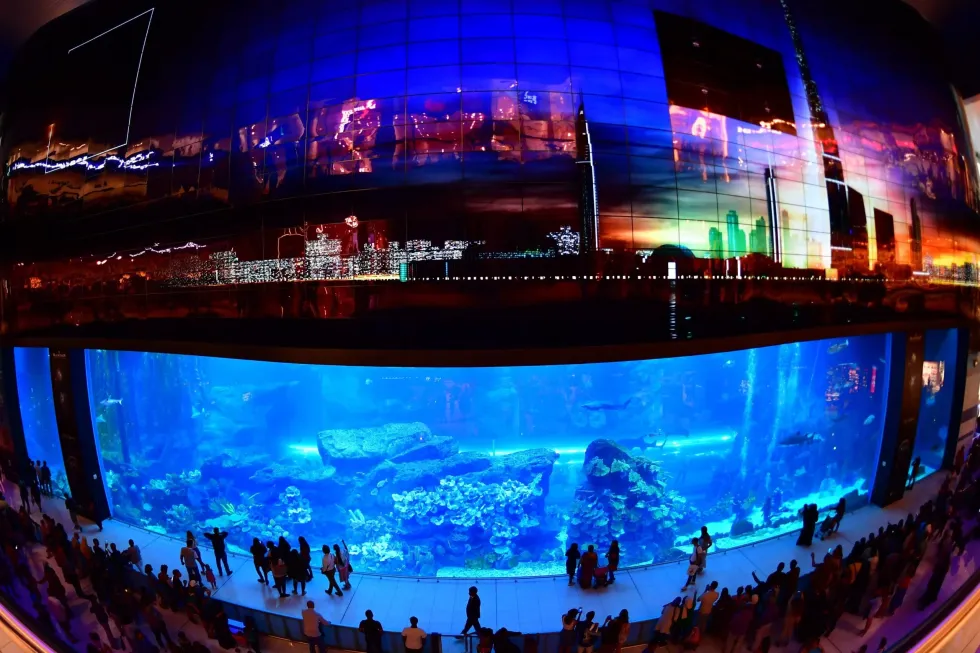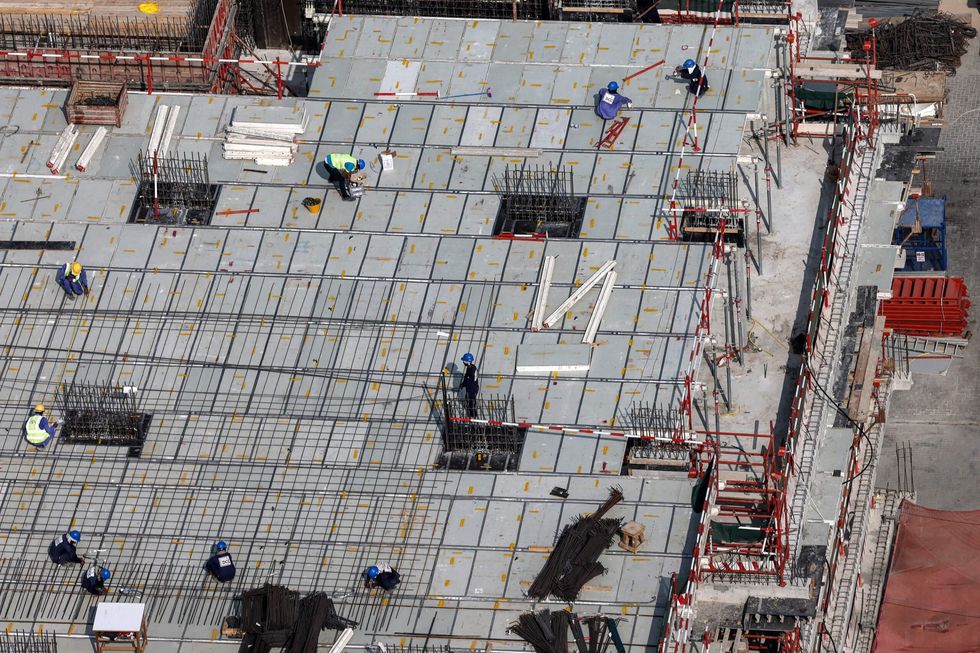DUBAI is synonymous with luxury and extravagance, attracting the wealthy and influential from around the globe. As I strolled through the city, the grandeur of its architecture and the opulence of its lifestyle were evident everywhere.
High-end shopping centres, like The Dubai Mall and Mall of the Emirates, offered everything from designer brands to indoor skiing, while the skyline was adorned with some of the tallest and architecturally unique buildings in the world, such as the Burj Khalifa.
The affluent neighborhoods of Dubai, such as Emirates Hills, Dubai Hills, and Palm Jumeirah, are home to some of the city’s wealthiest residents. These areas boast expansive villas, state-of-the-art amenities, and lush greenery, offering a stark contrast to the arid desert landscape surrounding the city.
The social scene also reflects this wealth, with many residents who have relocated from London, escaping the UK’s tax burdens and embracing Dubai’s tax-free lifestyle. The party scene shifts from London to Dubai in winter, with social gatherings and luxurious events becoming the norm. A number of Londoners have holiday homes in Dubai. Come summer, these Dubai residents often return to London, enjoying the hospitality of friends, who frequently host gatherings in honor of their Dubai acquaintances.
During my visit, I met a retired couple in Emirates Hills who had moved from London to save on taxes. Their home was so vast that you needed transport to move from one end to the other. Despite the isolation they might feel being far from their immediate family in London, they seemed content, enjoying the financial benefits and luxurious lifestyle that Dubai offers.
This tax-free environment is a significant factor driving many, including more of my friends with small children, to relocate to Dubai, especially after the recent VAT addition to private school fees under the Labour government in the UK, which has made Dubai’s advantages even more appealing.
Middle-class expatriates, including professionals like engineers, accountants, and doctors, also enjoy a good quality of life in Dubai. These individuals often live in well-appointed apartments across the city, with access to community amenities, such as gyms and swimming pools.

The higher salaries in Dubai allow for a comfortable lifestyle and savings for the future. I met a doctor who had recently moved from London. She told me, “I moved a year ago, and though my mother was upset about it, I explained that London was becoming too expensive and toxic. Even friendships were strained by the extremely competitive landscape there.”
She found happiness in Dubai, enjoying the company of her colleagues with whom she socialises every night. However, the trade-offs, such as being far from the familiar landscapes and loved ones, are a constant consideration for many.
The Dubai International Financial Centre (DIFC) area offers a unique way of living for professionals. The city’s towering skyscrapers are not just office spaces, but also contain comfortable apartments. Residents of these towers enjoy the convenience of having an array of hospitality services right below their living spaces. This efficient lifestyle allows professionals to move seamlessly from work to leisure without leaving their immediate surroundings. During my stay at Index Tower, I experienced first-hand the stark contrast in lifestyles, from the luxury of the residential lifts to the everyday struggles of laborers using the service lifts.
One day, I happened to use the service lift and met several labourers from Punjab. I had a conversation in Punjabi with a plumber who was thrilled that I spoke his language. I asked him how he was, and he replied, “The best I can be. Under the conditions, I am grateful I have a job and am not in some agricultural dispute or using drugs to stay oblivious to my situation of having no work in Punjab. I don’t mind sharing and living here and going home once a year. I am grateful I am employed.”
I was speechless. His gratitude for having a job, despite the challenging conditions, highlighted the vast difference in lifestyles that exist within the same city.
Beneath Dubai’s shiny exterior lies a stark contrast in the living and working conditions of its blue-collar workforce, many of whom come from India and other south Asian countries.
Dubai is home to more than 1.5 million Indians, who constitute a significant portion of the city’s expatriate population. However, the socio-economic divide within this community is striking. While a small percentage enjoy luxurious lifestyles in upscale neighborhoods, the majority are engaged in blue-collar jobs, often working in construction, municipalities and agricultural sectors. These workers typically face challenging living conditions and earn modest incomes.
Despite regulations to protect workers from the midday heat, enforcement is inconsistent, leaving many vulnerable to severe heat-related illnesses.

Social disparity is evident in many aspects of daily life, from healthcare access to legal protections. While the wealthy and middle-class residents enjoy comprehensive healthcare and robust social protections, the labourers often face exploitation, highlighting the need for stronger enforcement of labour laws and better protections for these workers.
The rapid urbanisation and construction of towering skyscrapers in Dubai also raise significant environmental concerns. The reliance on air conditioning to combat the extreme heat contributes to high energy consumption and carbon emissions.
Moreover, the lack of green spaces and the preference for indoor plants over natural landscapes underscore a growing detachment from nature. This lifestyle, driven by financial gains and convenience, poses questions about sustainability and the long-term impact on the environment.
Dubai presents a tale of two cities: one of immense wealth and luxury, and the other of hardship. While the city offers a paradise of luxury for the wealthy and a comfortable life for many, it also hides the struggles of the labourers who contribute significantly to its development. Addressing these disparities is crucial for ensuring a more equitable and just society for all who call Dubai home.
As Dubai continues to evolve, it is essential to address these disparities to create a more inclusive environment for all its residents. Moreover, as the city continues to grow and develop, it must also address the environmental challenges that come with rapid urbanisation.
Sustainable living practices and a greater connection with nature are essential for creating a city that is not only prosperous, but also liveable for future generations. The balance between progress and preservation will define the true success of Dubai in the years to come.




The allure of Dubai for British Asians
But behind Dubai's luxury façade lies a stark divide between the affluent and the labourers who build the city